Our Prevention Videos
PCAIN 2024 Webinar Series
“Turning Distress into Joy” 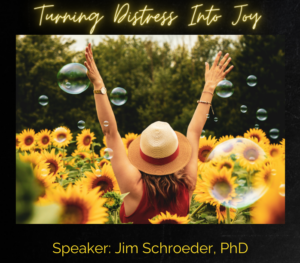
Presented by James Schroeder, PhD, Vice President of the Dept of Psychology & Wellness, Easterseals Rehabilitation Center
February 2, 2024
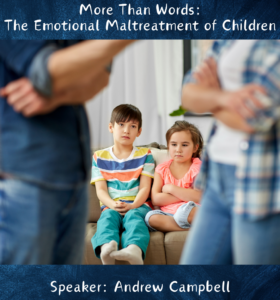 “More Than Words: The Emotional Maltreatment of Children”
“More Than Words: The Emotional Maltreatment of Children”
Presented by Andrew Campbell, Founder/CEO, Campbell Research & Consulting
February 9, 2024
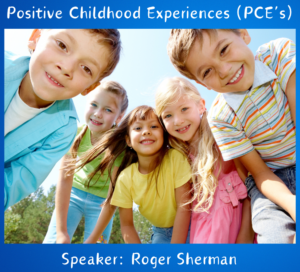 “Positive Childhood Experiences”
“Positive Childhood Experiences”
Presented by Roger Sherman, Executive Director, Idaho’s Children’s Trust Fund
February 16, 2024
PCAIN 2022 “Breaking the Cycle” Webinar – “Supporting Wellbeing: An Introduction to Mind Body Medicine”
June 24, 2022
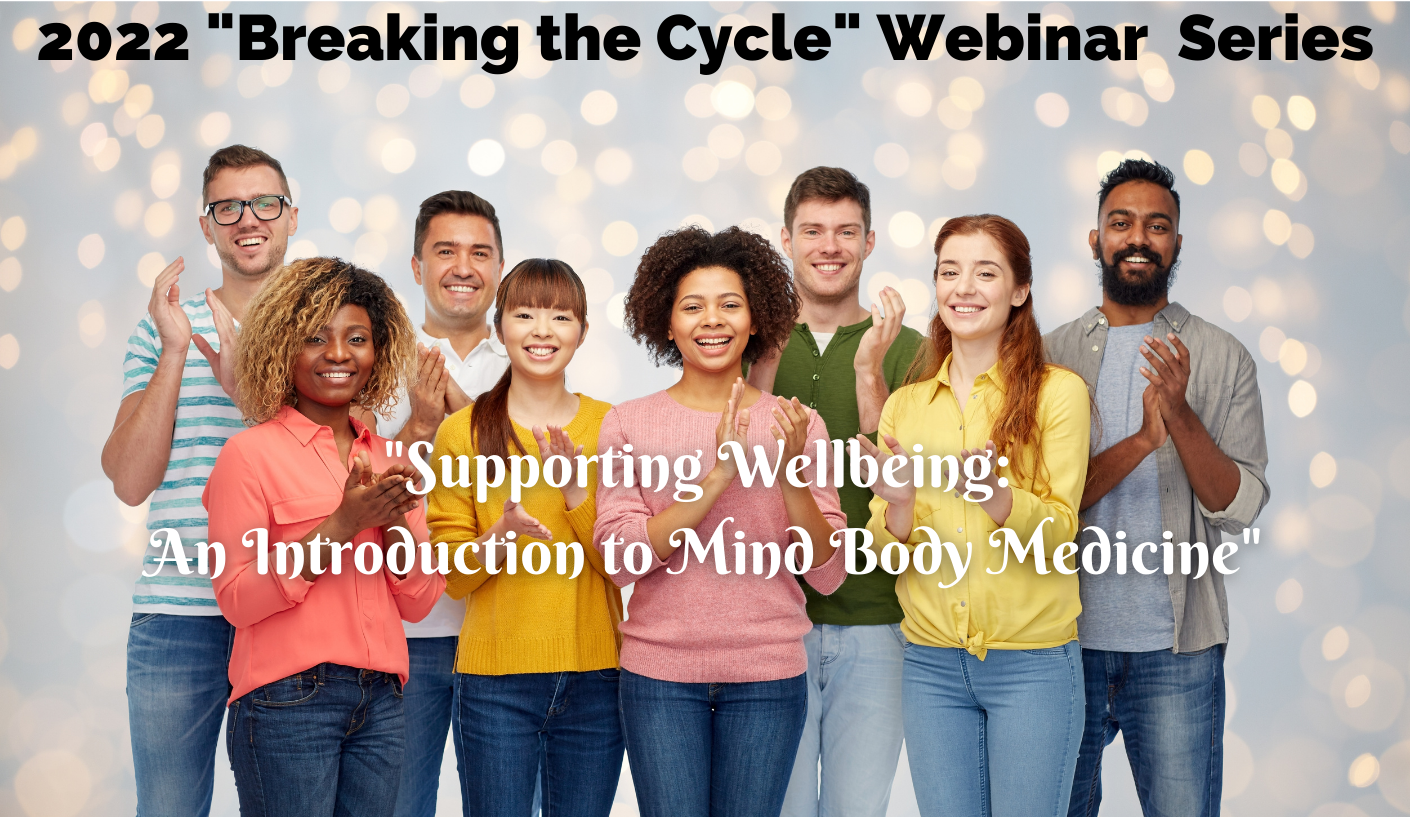
PCAIN 2022 “Breaking the Cycle” Webinar – “Trauma Informed Homes”
June 17, 2022
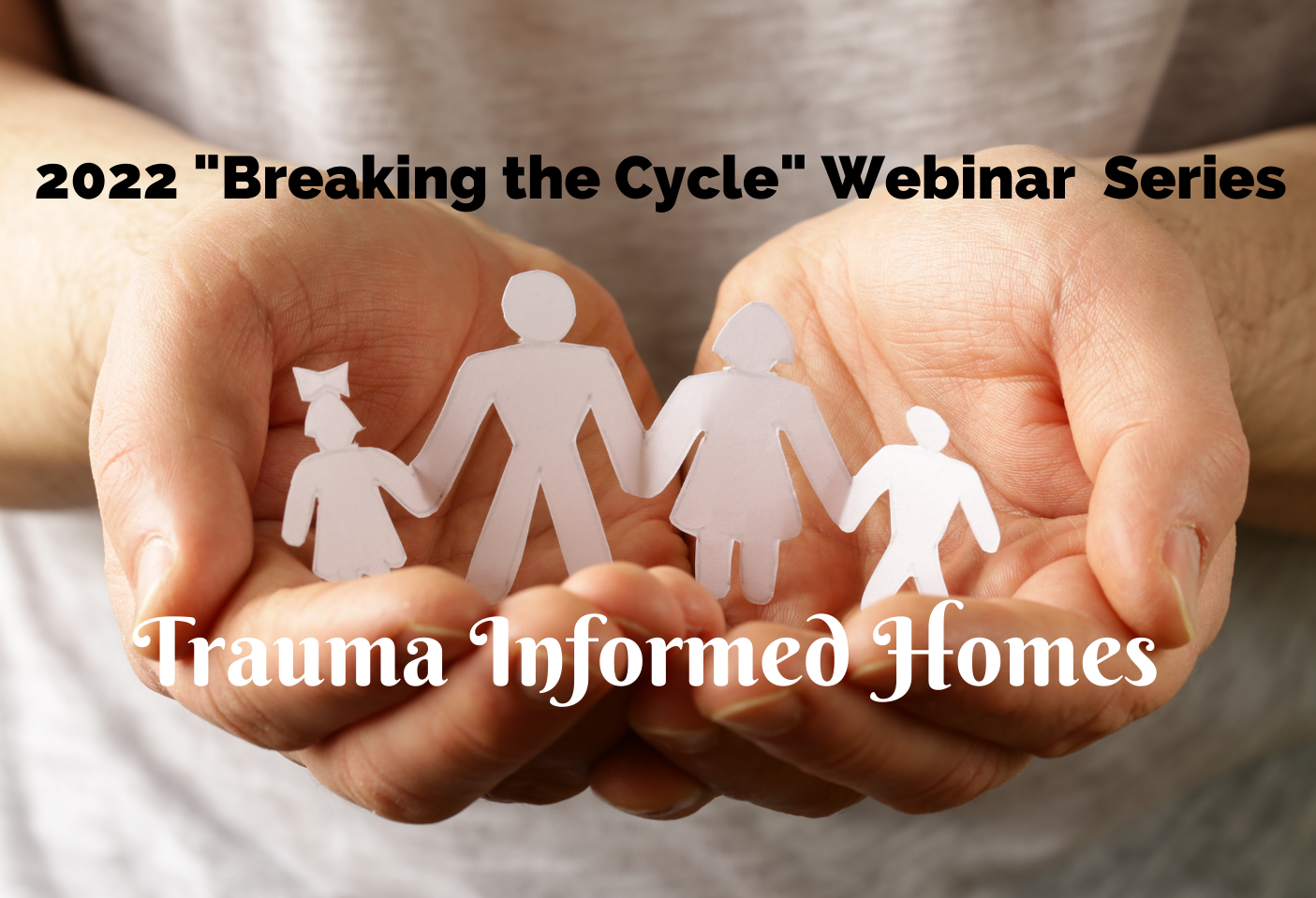
PCAIN – 2022 Child Abuse Prevention Month Kickoff – March 29, 2022

2022 – Indiana DCS/Villages/PCAIN Child Abuse Month Kickoff – April 1, 2022 with Governor Eric Holcomb

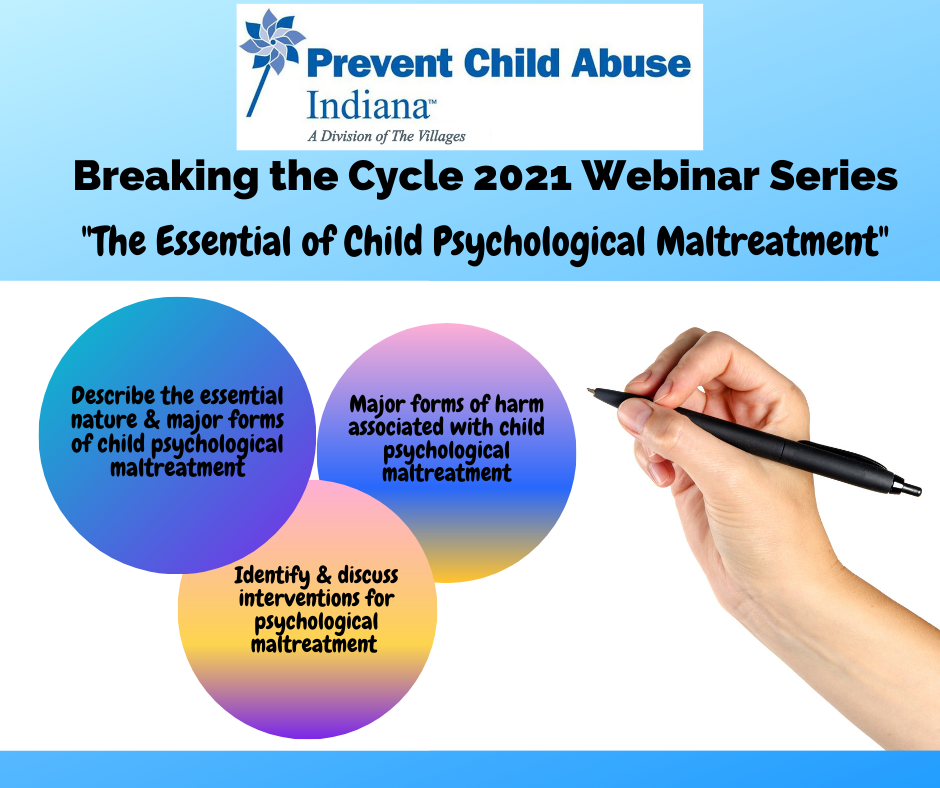
“Disaster Without, Disaster Within: Natural Disasters, Domestic Violence & the Covid-19 Pandemic”
June 11, 2021
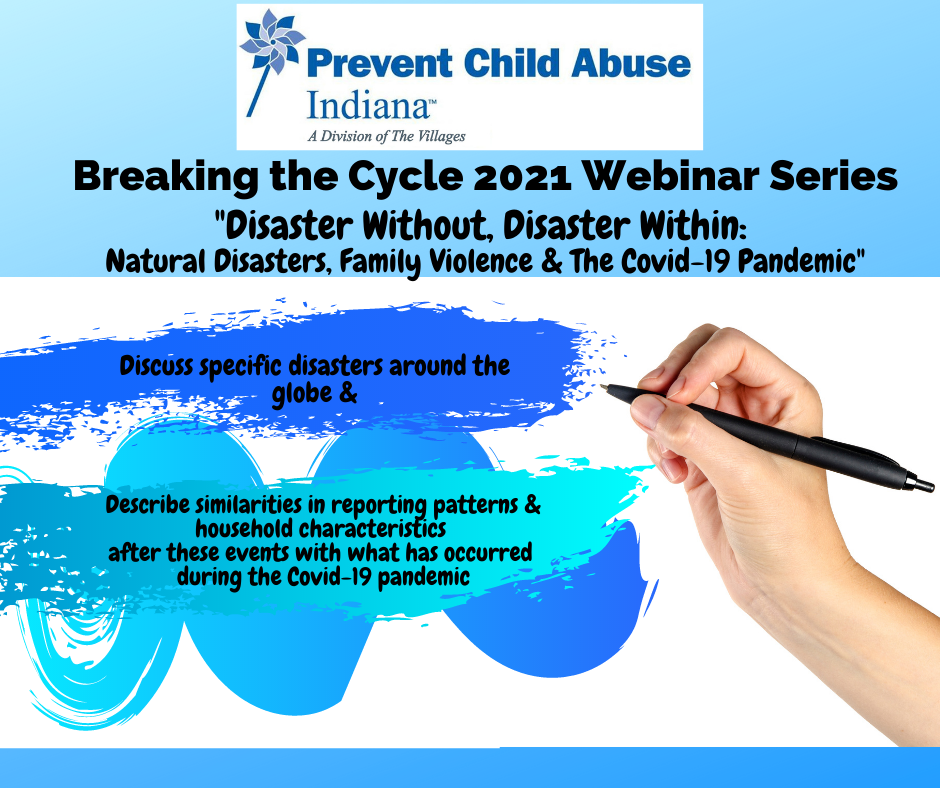
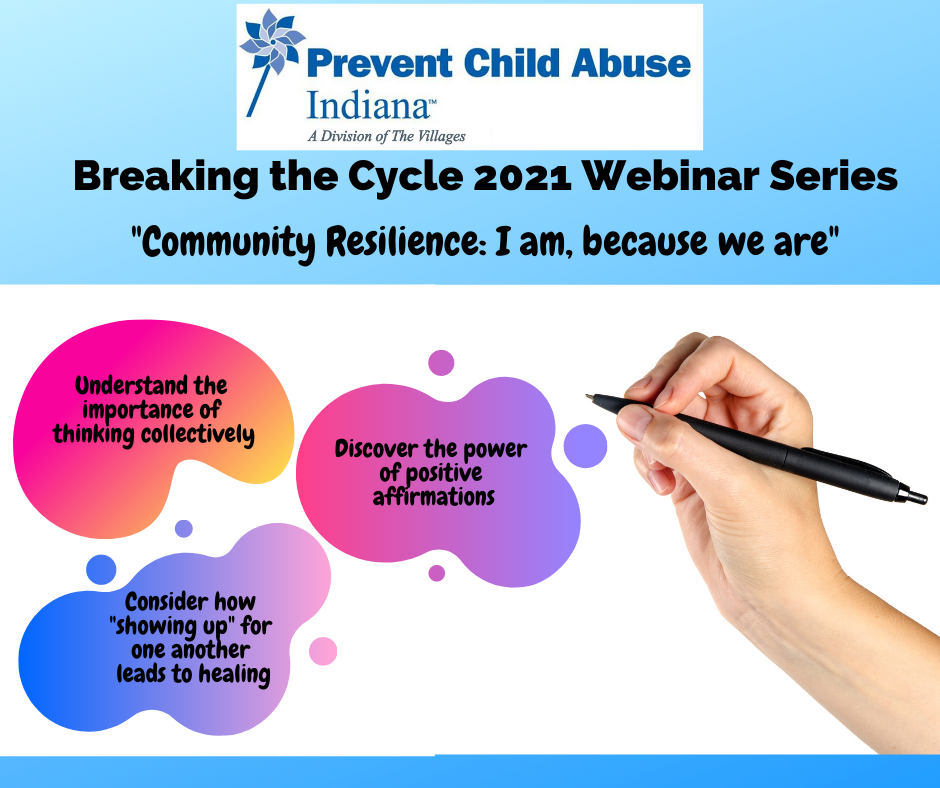
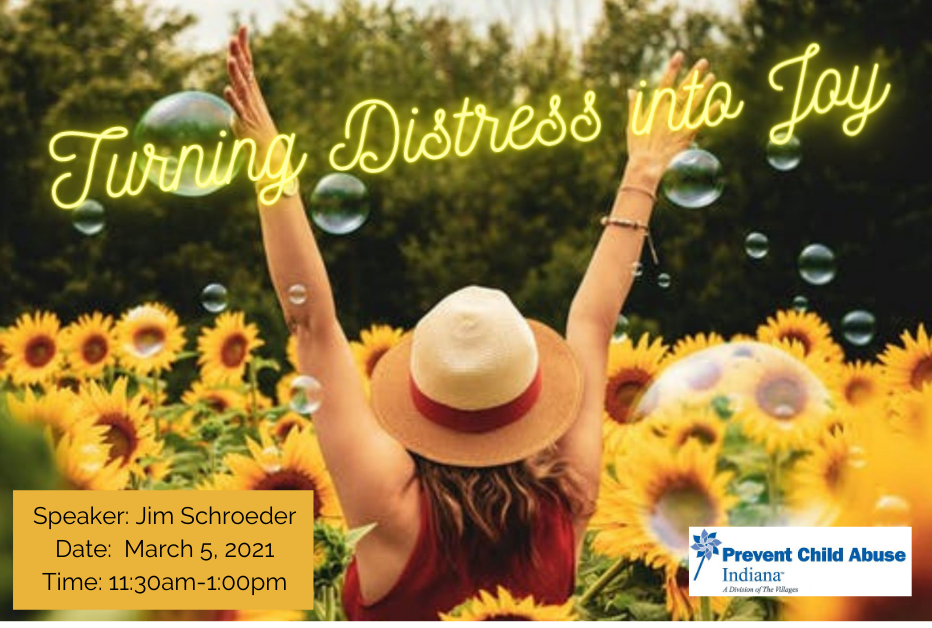
Creating LGBTQ+ Affirming & Empowering Child Welfare Spaces Webinar
Feb 17, 2021
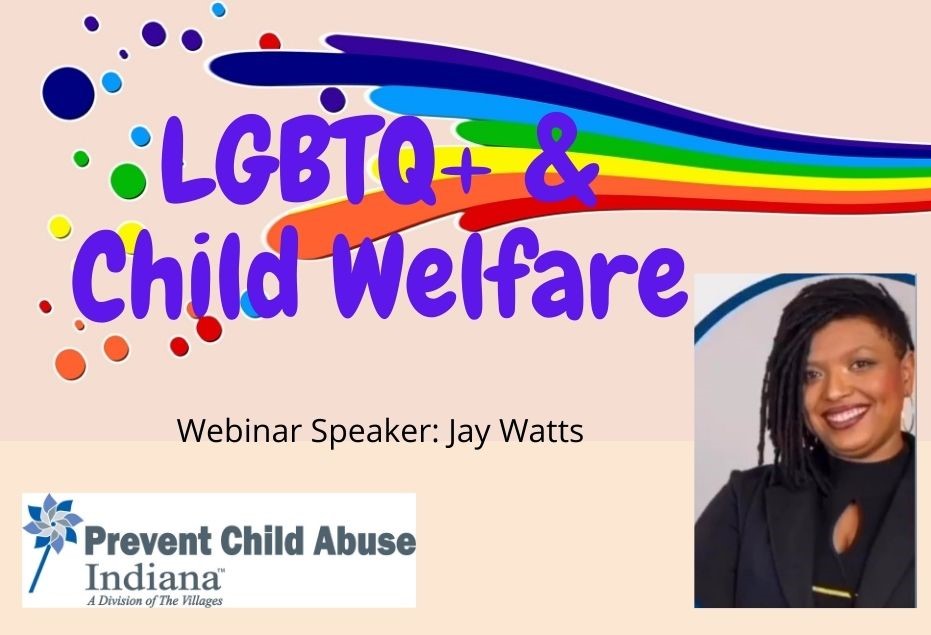
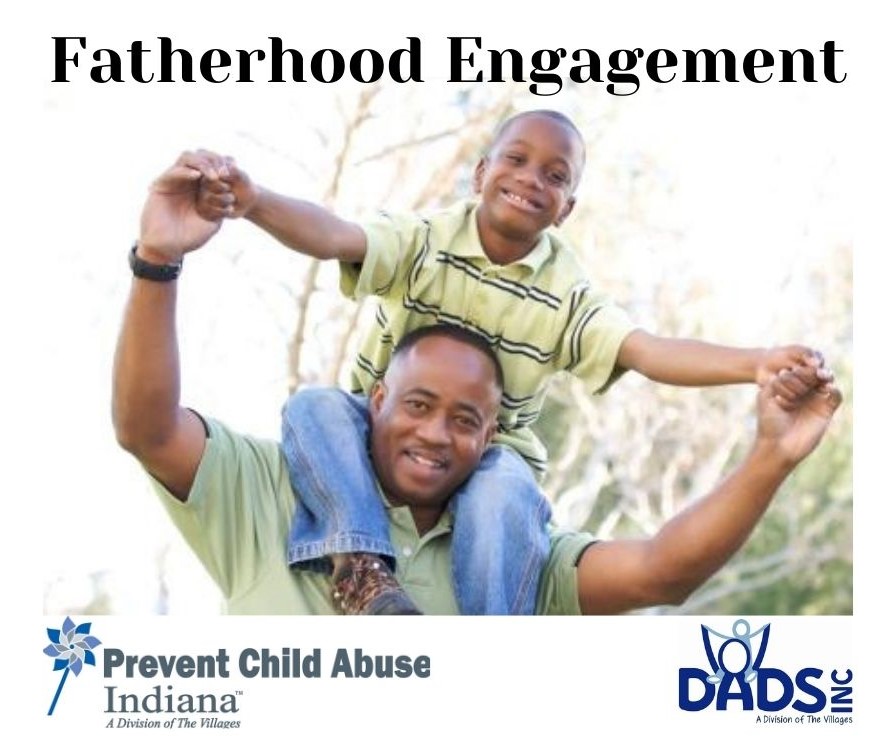
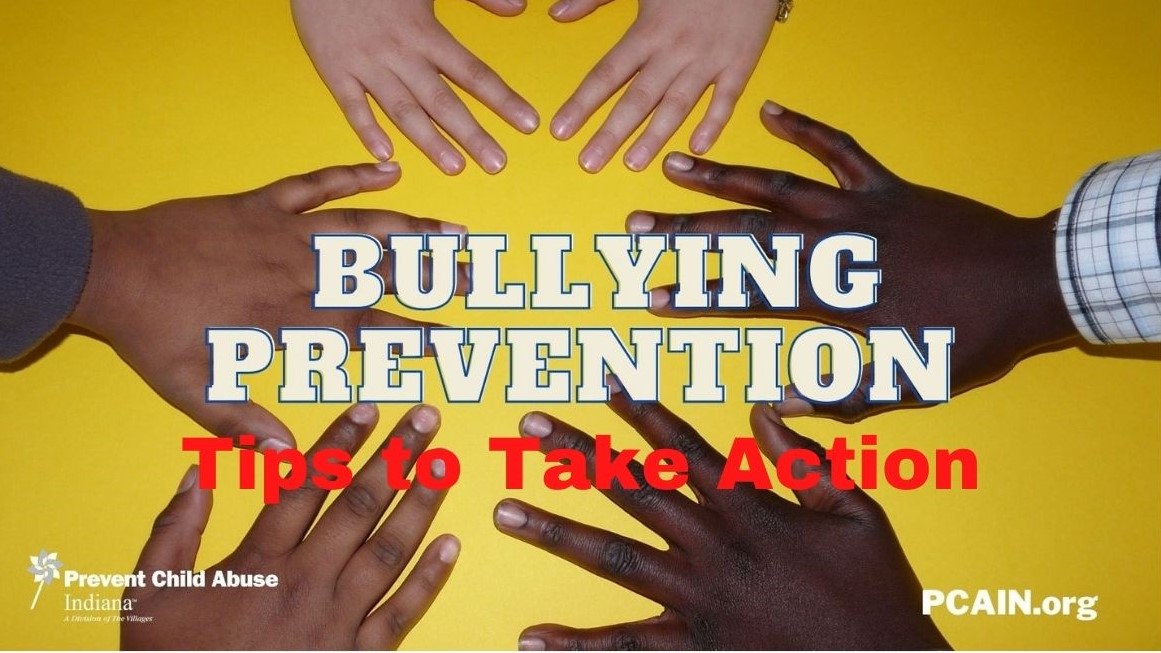
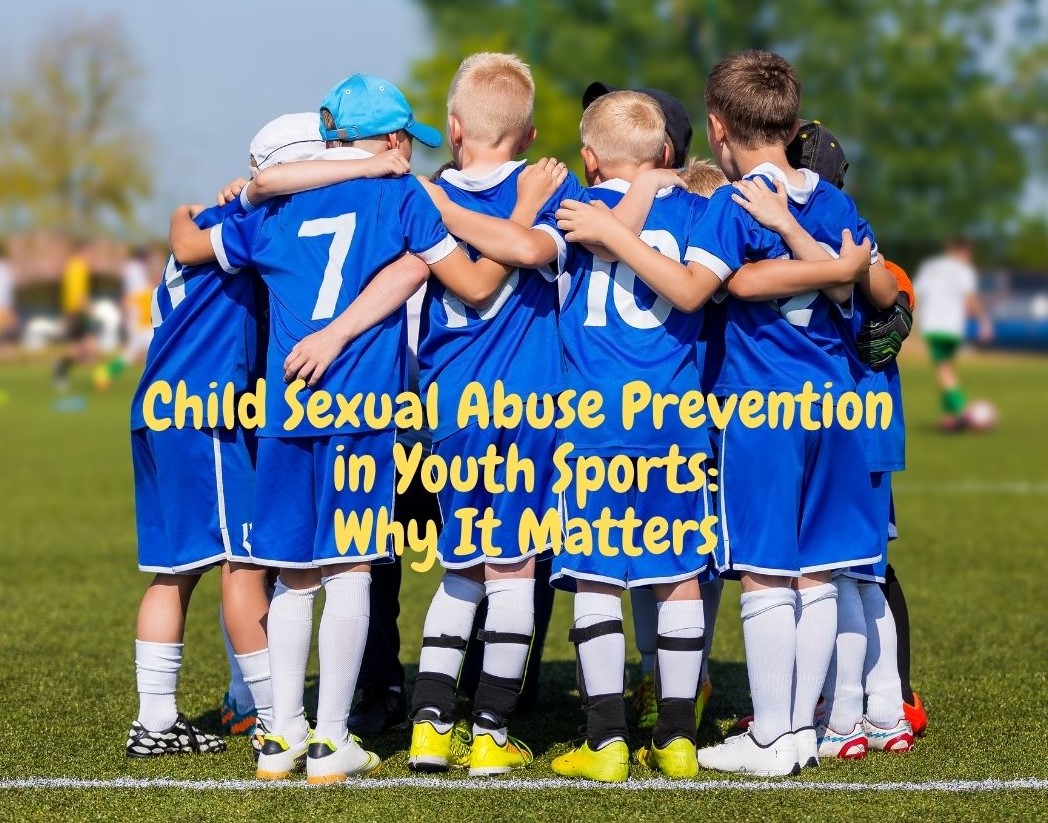
Sexual Abuse and Sexual Exploitation
Shaken Infant Syndrome/Abusive Head Trauma Prevention
Prevent Child Abuse Indiana, Indiana Youth Services Association, and The Health Foundation of Greater Indianapolis joined forces to raise awareness about child abuse prevention and shaken baby syndrome, or “abusive head trauma,” reaching out to men and talking about ways to relieve frustration and build stronger bonds with the little one.
Frustration with crying is the number one reason why babies and young children are shaken. Babies cry—it’s inevitable. The important thing for fathers is to be cool; be calm; and call someone if you need to. Take a time out, but don’t take it out on a baby.
Shaken Baby Syndrome (SBS), a form of abusive head trauma (AHT) and inflicted traumatic brain injury (ITBI), is a preventable and severe form of physical child abuse. It results from violently shaking an infant by the shoulders, arms, or legs. SBS may result from both shaking alone or from impact (with or without shaking). The resulting whiplash effect can cause bleeding within the brain or the eyes.
Nearly all victims of SBS suffer serious health consequences and at least one of every four babies who are violently shaken dies from this form of child maltreatment:
- Abusive head trauma is the leading cause of physical child abuse deaths in the United States.
- Babies less than one year old are at greatest risk of injury from abusive head trauma.
- The most common trigger for abusive head trauma is inconsolable or excessive crying.
Watch our campaign video here:
Safe To Sleep – Safe Sleeping Saves Lives
Safe sleeping practices are a vital skill for all caregivers to learn and practice. Exercising safe sleep positions and routines can save a child’s life. Fortunately, these practices are simple. You can remember them by just thinking “B.I.B.S.”:
- Baby alone (with nothing else)
- In a crib (no co-sleeping with the baby in your care)
- Back to sleep (lay your baby on his or her back to sleep)
- Safe sleep (these steps keep your baby safe)
To learn more, watch our video below:
